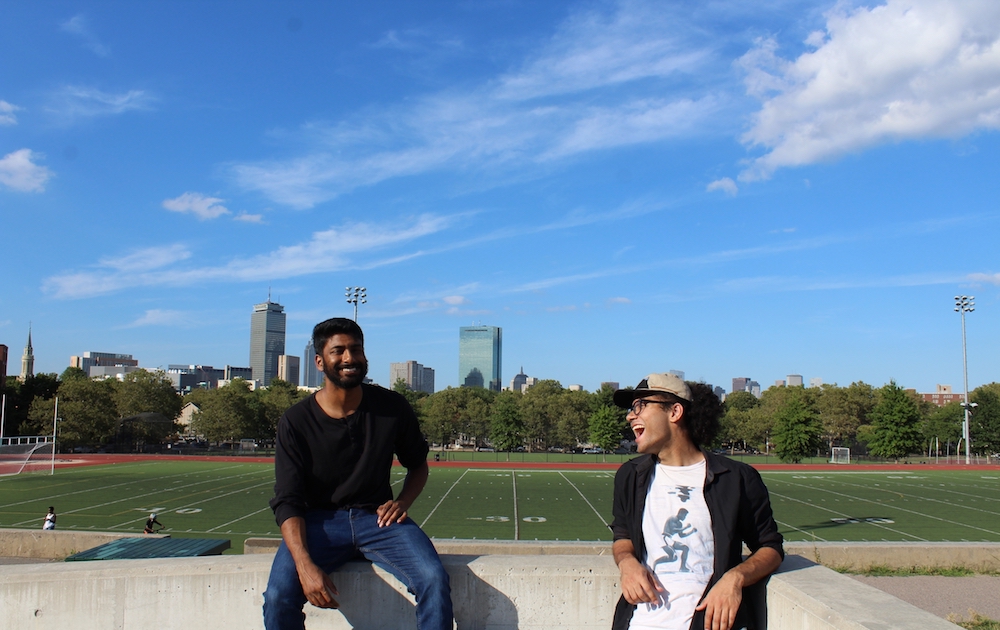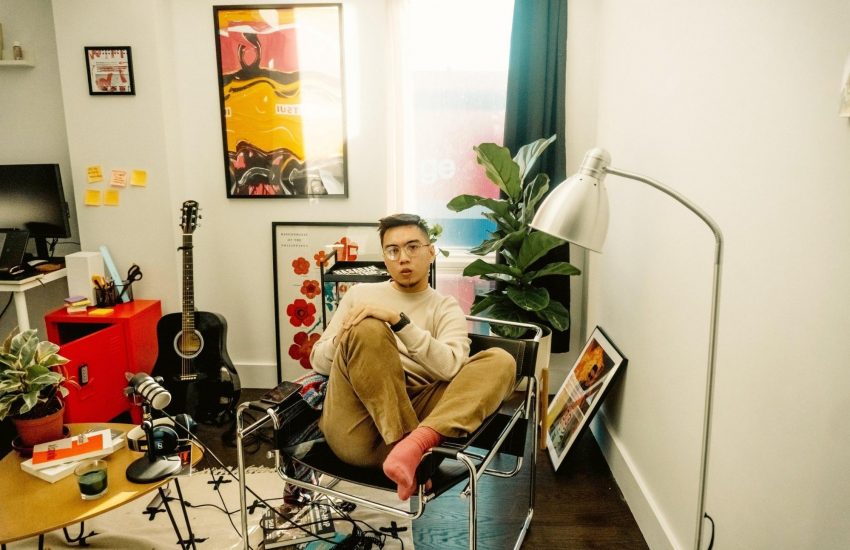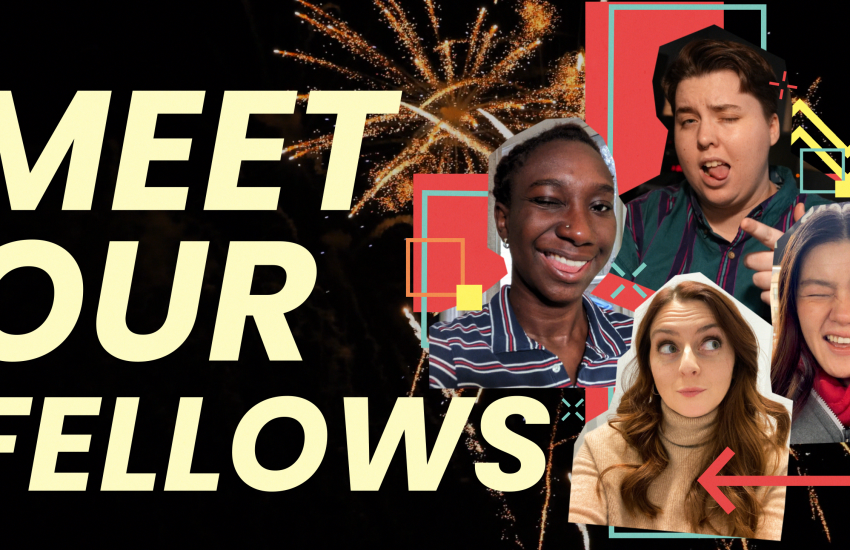How two students created a 7-part podcast on crack cocaine and civil rights
This post was originally published on The Docket, a data-driven media lab focused on criminal, social, and economic justice issues, based out of the Media Innovation graduate program at Northeastern University.
When Northeastern University student Joe Tache came to Boston to pursue his degree in entrepreneurship, he quickly heard about the historically black neighborhoods that border campus.
“[As early as orientation] you’re told to be careful going into Roxbury,” Tache said. “Early on there is a notion that [students] get about black communities in Boston.”
Tache completed the community service hours required to maintain his scholarship, but until his work on the seven-part podcast “Colored: Crack Cocaine, the War on Drugs, and the Making of Post-Civil Rights America,” with friend, collaborator, and fellow student Prasanna Rajasekaran, he hadn’t really felt connected to the larger Boston community.
“I think to a lot of students, [the city] feels like a pit stop before you go onto your next destination,” said Tache.
The idea for a podcast came to Tache and Rajasekaran, an economics major, in the spring of 2016. They had heard about Scholars Independent Research Fellowships funded by the university and decided to apply. When Tache later stumbled upon a memorable Twitter thread, they knew what they would explore: the crack cocaine “scare” of the 1980’s and early 1990’s.
The extensive research that followed would test their preconceived notions, bend their biases, and open them up to the vibrant communities within reach. Colored quickly became a project that not only tackled the nation’s history of punitive drug policy but also focused on the unique perspectives of black communities in Boston. The Docket sat down with Tache and Rajasekaran to discuss Colored and its impact.
How did the idea for Colored first come to you?
Prasanna Rajasekaran: Joe and I started another podcast, in the summer of 2015, about politics and pop culture. It was a fun little project. We thought it would be cool to create, instead of a talk show like our other podcast, a journalistic, long-form narrative podcast. We weren’t entirely sure what the topic would be. Actually, we got the idea for Colored when Joe stumbled upon a string of tweets that really stuck with us.
Joe Tache: I’d seen posts from someone who had been living in D.C. during the height of the crack scare, talking about the fact that people who were born after ’92 and ’93 don’t actually understand what it was like to live in a major city during that time. The Democratic primaries were happening around that time, so there was also some talk about criminal justice reform. It was particularly interesting because [Bernie] Sanders and [Hillary] Clinton participated in the escalation of the war on drugs. Those two things were the impetus for us starting this project.
Rajasekaran: And we always wanted to make the project something somewhat local to Boston, so it ended up being more of an exploration into how Boston’s black community views the crack scare retrospectively. We tie that to a larger, national narrative.
Why do you think Colored is important now, so many years after the crack epidemic?
Tache: For me, the project has taken on more significance since we finished in October. The presidential election happened and Jeff Sessions was appointed as Attorney General, with his idea to reinvigorate the war on drugs, to reinstitute mandatory minimums, and to continue a racialized drug war.
I think the project is a wakeup call for people who believe in the integrity and equity of our political system, because we lay out all of these facts about racially demonizing people and how the government and the media contributed to and drove that demonization. And here we are, starting it all over again. We help to make it clear that, over a span of decades, the U.S. has a cycle of demonizing and exploiting black people, or people of color in general.
The podcast is a good tool of political education and, potentially, radicalization for people who listen to it. It’s important when the mainstream idea of resistance now, which has kind of been adopted by the Democratic party, is to call your senators, a basic form of political engagement that’s important but still exists within the status quo of the current political system.
What do you hope that people who consume the podcast get out of it?
Tache: That’s tricky, because every listener starts in a different place, with different knowledge. I’ll focus on my hopes for the average Northeastern student. Most students at the university don’t come from the low-income, black, urban neighborhoods that surround campus. They move to Boston and live right next to those communities.
Throughout my first couple of years at Northeastern, I had to do some mandatory community service for my scholarship, but I never really felt connected to Boston. I think that, for a lot of students, it feels like a pit stop before the next destination. But the reason that we even have a campus is because the school has completely changed a number of the neighborhoods that surround it and has continuously expanded into those neighborhoods.
For those students, I hope that this project breaks down their impressions of the surrounding communities and makes them feel that they should have some kind of stake in the city they’re living in.
Rajasekaran: I hope listeners learn what the crack cocaine scare really was, versus the media and political hysteria that came along with it. It is important to acknowledge that crack was a thing that happened, but the response to it was not at all proportionate to the actual problem, nor was it trying to solve it. The point of the punitive drug policy that came out of the crack epidemic wasn’t to help people who had crack addictions; it was to criminalize black and brown people.
On a broader level, the podcast is really an exploration into race after the civil rights movement. There is this idea that racism ended in the 60’s. But the reality is that, even though progress was made, racism certainly has continued. Instead of outrightly discriminating against people and segregating them, we started to attack certain qualities of people. We said, “Black people do drugs, and drugs are bad, so black people are bad.” I hope listeners ask themselves, “How do we change our policy, which exploits a historic inequity in communities of color?”
Did hearing from your sources make you feel more like an authentic member of the Boston community?
Rajasekaran: Big time. Not only are we not from the community, but we also go to Northeastern. The university has done things that have had a problematic impact on the black community in Boston. We originally thought, “Can we really talk to these activists from Roxbury, who are probably skeptical of us?” And some people were, but their skepticism didn’t stop them from talking to us. I think that, once they did, they realized we had good intentions.
Tache: This experience has opened my eyes to the fact that, in many ways, I was a leech on this city in my first years in college. I now feel more connected to the city and those who live and organize here, but I have a desire to do more. I want to be more involved in local organizing and think more about how my role as a student impacts the city that we’re in.
Aside from your talk show-style podcast, had you had any experience with audio production before [Colored]?
Tache: The informal project we’d done previously did get us some kind of comfort speaking behind a microphone, although it is a lot different when you’re just having a conversation versus trying to make a script that sounds captivating.
Rajasekaran: I had taken an audio production class, just as an elective, knowing that we would want to do something that was more intensive. I learned Pro Tools through that class, but that was about it.
Tache: I think a lot of it was just learning as we went. You can tell that we’re improving as the series goes on.
Once you applied for funding, what kind of resources did you have?
Rajasekaran: We got $5,000 each, which went to audio equipment, rent, and food. We got a shotgun mic, two standard podcasting microphones for narration, and an audio recorder.
Tache: We can’t really overstate how helpful that funding was. But our faculty mentor, Dr. Sarah Jackson, was an invaluable resource. She is a professor of communication who focuses on social movements. We would send her the scripts we’d written for episodes to get her thoughts on them. She would let us know if there was a hole in our logic somewhere; if we weren’t pushing hard enough; if we had to cover something to a greater degree. Dr. Jonna Iacono and Dr. Andrew Karas from the University Scholars Program were also supportive resources.
But I think we have to give a lot of credit to the people that we interviewed. We didn’t start off with a huge list of people to talk to. It was like a snowball; we talked to one person and they referred us to two or three people who would refer us to more people, and so on. Without their willingness to leverage their relationships and share their own lives, the project would not have been possible.
How did it feel doing this journalistic work? Were there any challenges that you hadn’t anticipated?
Rajasekaran: First of all, neither of us are journalism majors. We were so nervous doing our first couple of interviews. We were very awkward. The interviews turned out fine, but getting the hang of asking the right questions, paying attention to the answers while following your list of questions — that was definitely difficult. Making sure we got good sound quality out of our interviews was another challenge. I once recorded a full interview on my cellphone and the sound quality was just awful. We had to learn by doing.
Tache: We weren’t expecting to have as large of a scope as we did when we started the project. But, when we had a question about Reagan or the 80’s, we soon realized that, to fully answer that question, we had to start in the 70’s or the 60’s. And, really, to get to the root of racialization we had to go back to the beginning of colonialism in the U.S. But it was particularly hard to try and get at what the impact of the crack “scare” itself was. We were walking a line between overstating and understating what exactly had happened.
Did you have a personal goal throughout this process?
Rajasekaran: We wanted to create an expansive, editorialized piece, and to have it be as creative and unique to our voices as possible. I’m part of a political magazine on campus, so I’ve written 2,000- or 3,000-word, opinionated pieces, but I’ve never done something like this. All of our scripts came out to 50,000 words!
Tache: Colored was something of a magnitude that I hadn’t attempted to create ever before in my life. Seeing if we could do it, and do it well, was definitely a personal goal.
Has this project changed your course, as to what you want to do professionally?
Rajasekaran: I’ve thought a lot about a career in journalism. I struggle with the idea of writing about something and not being able to actually do anything about it, about exposing problems and not being able to solve them. I know I want to keep writing, and I’m always going to be a huge consumer of news, culture, and media. But, as of now, the plan is for me to go to law school.
Tache: I think that organizing is really crucial to the systematic change that we’d like to see; this project definitely contributed to my awareness of that. This experience has prepared me to think more critically about our political system, about race, about class, and about gender and sexual identity. In short, it’s definitely affirmed my interest in organizing.
What do you think is unique about audio?
Tache: I think that audio is a really cool way of condensing all of the information we’d gathered — from the people we talked to, the reading we did, the discussion between us and others at the university — into a digestible form.
Rajasekaran: Audio is also a much more passive form of consumption. You can listen to a podcast while working, working out, or eating. You can’t really do that when you’re reading an article.
Tache: You can also do creative and engaging things with audio. Breaks between sections, when Prasanna and I would just talk for a couple of minutes, helped us to change up the pace. We also added music backdrops that set the tone for what we’d written in the scripts.
Rajasekaran: In terms of creating the content, I think audio is a lot harder to create than text. You have to write out your entire script, record your narration, conduct your interviews, and then you have to go through the really tedious process of editing. You need a whole other set of skills.
Can you describe your relationship as creators and collaborators?
Rajasekaran: Joe and I have been close friends since the start of college. We met on one of the weekends hosted for admitted students before we actually came to Northeastern. Joe has always been the guy I’ve talked about all of this kind of stuff with; about race and identity and politics. So it was very natural for us to take on this issue and explore together. Sometimes it can be hard to work with a friend on academic and special projects, but I didn’t find that to be the case at all. It actually was really helpful that we could openly communicate with each other.
Tache: I don’t think that there’s anyone else in the world that I could do this project with. When you spend so much time together working on a project, there could certainly be some tensions. But because of our relationship, we were able to be honest with each other and just say if we didn’t think something was working.
Rajasekaran: I definitely would not have been able to do this project with someone who wasn’t Joe. He’s so thoughtful and we were dealing with issues of such gravity. I could trust him with all of that.





